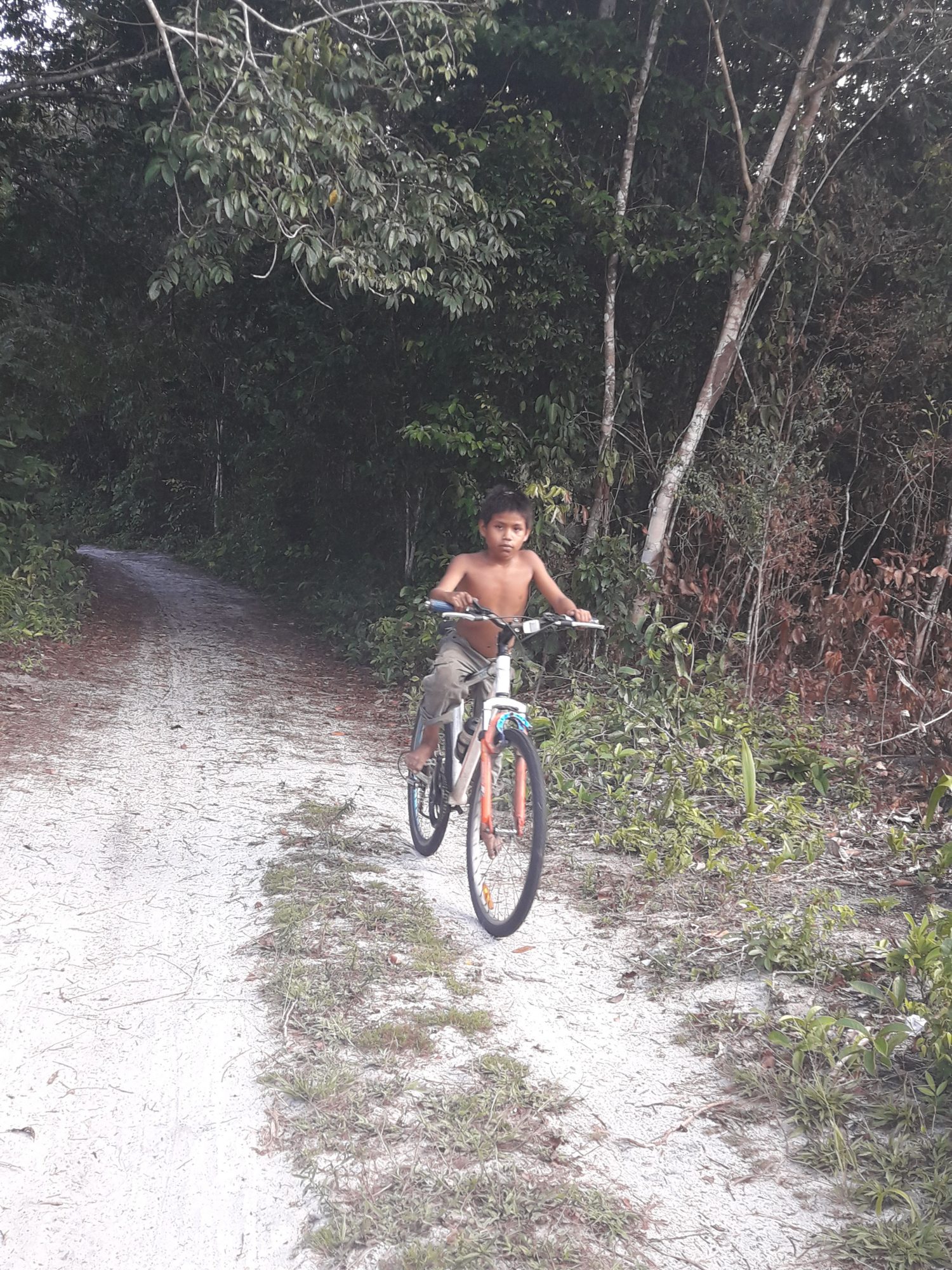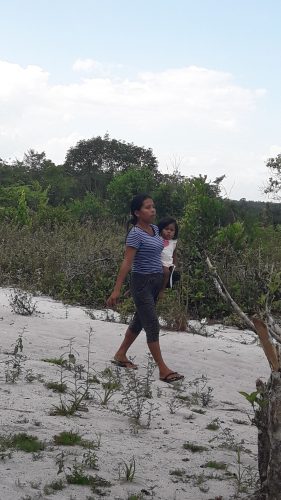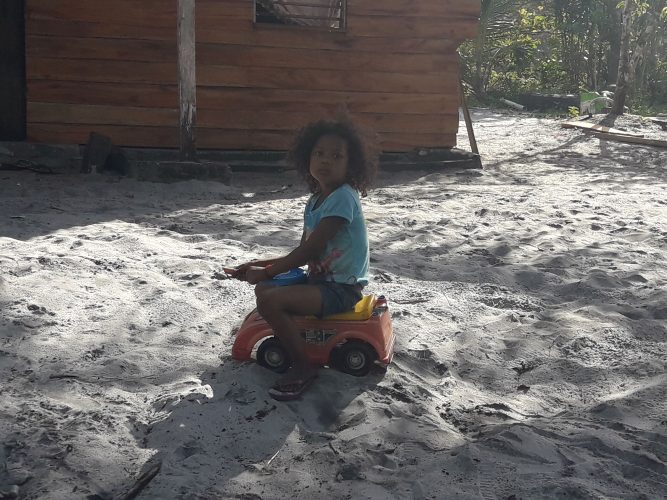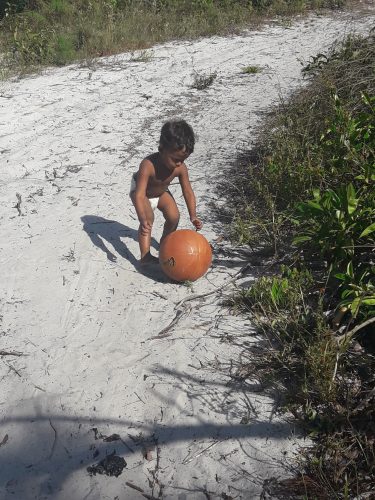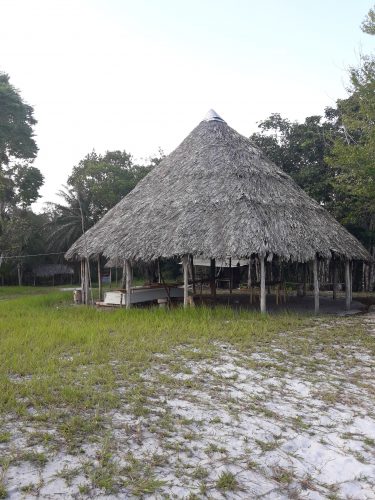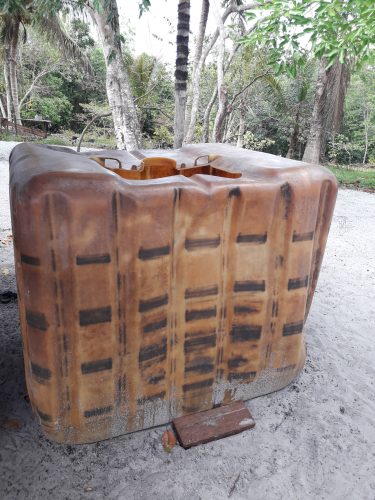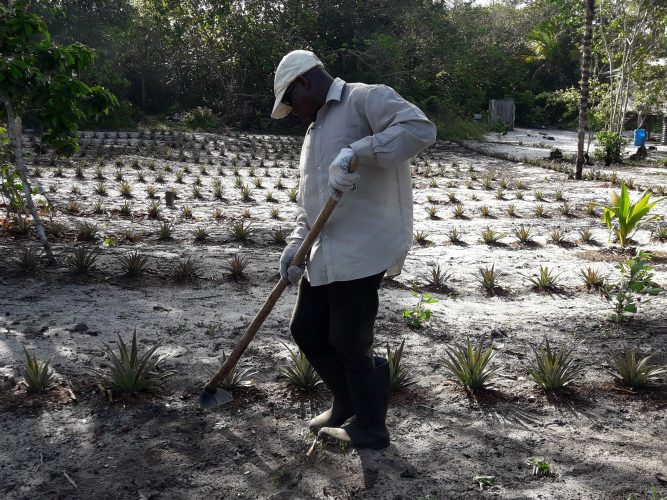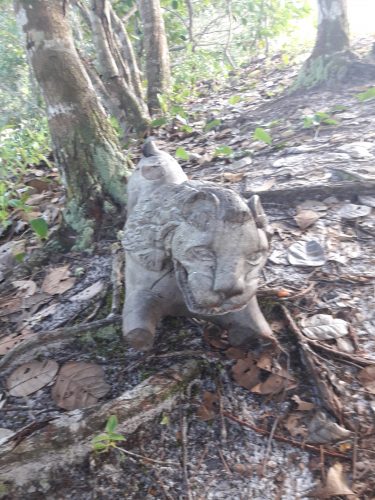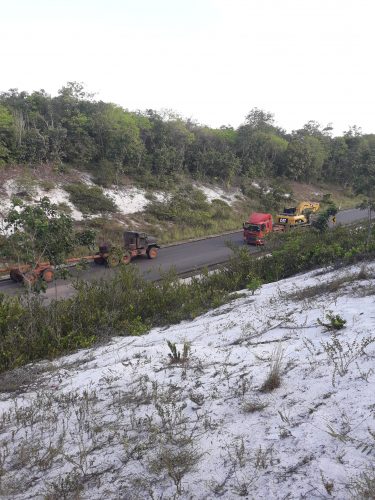Nestled in the forest along the Linden/Soesdyke Highway, some 50 miles from the capital is the village of Kairuni. From the highway, Kairuni looks like it has just a handful of families, but that is an illusion. Most houses are scattered throughout the forested area and therefore, its 600+ Amerindian and mixed-race residents are usually hidden from sight.
According to some of the older residents, the village was once called Elizabeth. Back then, they lived closer to the Demerara River which gave them easier access to Linden; there was no highway at that time. After the highway was built, the nearby creek was named Kairuni which led to the name of the village. People then moved closer to the highway, as they could now make trips to Linden by road.
The village has no paved roads; shortcuts are used by those going on foot and vehicles use the larger sandy tracks.
The village is said to have existed since the 1800s. One resident said his grandfather came from Venezuela and after finding himself a wife, settled among others who were already there. His three daughters, Emily aka Hilda, Mary and Christine, later raised their families in different parts of the village. Most of the other residents migrated from the North West District in Region One (Barima/Waini). Of the trio, Emily Daniels, now 95 years old and Mary Bowry, 77, remain alive today.
Bowry was relaxing on her couch. “I was born and raised in Elizabeth; we now call here Kairuni. We were three sisters and my parents. We used to farm. We planted eddo, cassava, mainly ground provision and cash crops. We used to burn the place [trees and weeds], plant the seeds and harvest it when it was time,” she said.
Today what is now the front part of Kairuni was all jungle in her girlhood days. Her family lived close to the Demerara River and using a canoe they would paddle through the creek to the river, which would take them to Linden whenever the need arose which was usually on Saturdays for groceries.
In this same creek, they did laundry, bathed and from it drew water for drinking and cooking. “The creek water grow me up,” Bowry said. She recalled seeing caimans in the creek but said they were never bothered by them. Today, residents still use the creek water to wash clothing and to bathe. Since there is no potable water in the village, when it rains they collect water for drinking and cooking, but mostly, they buy bottled water for drinking and cooking purposes.
During the early days, jaguars were aplenty. They roamed the village often making off with pigs and dogs. In an effort to protect his animals, Bowry said, her father would shoot at them and they would run off, but they always returned.
Later, more people moved in and the highway came and she and family moved closer to the highway. “It was beautiful, the highway, all brand new. The road was pitch-black. It was nice to hear vehicles running along the road; in those days only the sand trucks, the Tata bus and the Leyland buses ran the road.”
According to Bowry, although they knew of Easter as children, they never flew kites. They would observe Good Friday, however, travelling to an Anglican Church in Dalgin, a village in the Demerara River, which no longer exists. They would also bake hot cross buns, a tradition the family has kept through its generations. Today the children of Kairuni fly their kites on the ballfield every Easter.
Bowry said it is her wish to see all of Kairuni have access to potable water and electricity. Some residents use batteries, solar panels and generators to power their televisions and fridges.
A young man sitting nearby on Bowry’s steps who is a neighbour and attends the Christianburg Secondary School in Linden said that a computer hub was built in the village sometime last year but to date the hub hasn’t been equipped with computers.
The secondary school student also said that many days he and other students wait for lengthy periods for a bus to get to school, sometimes more than an hour. He said he would be grateful if the government can provide them with their own school buses instead of them having to wait on private buses.
“Otherwise,” Bowry finished. “We like living here. The people are okay people.”
Audrey Klass found home again when she found Kairuni 15 years ago. She had left Moruca in Region One more than 27 years ago trailing her parents who had migrated some years before. For a number of years, she lived and worked in Georgetown, but it took some getting used to; the noisy traffic, claustrophobic market squares and busy streets. But as oppressive as it was, she continued to make a living. Acquiring a plot of land in Kairuni some years later was a dream come true for Klass, who moved to the village with her two daughters. However, one of them later died, when she was 20 years old and having just graduated from the Cyril Potter College of Education. “Her death was too much for me,” Klass shared.
Although Kairuni reminded her of the home she had left behind, it was somewhat better. “At the time I left Moruca the health and education were not up to date. It was hard to get food. We didn’t have jobs so though we farm and get like ground provision and catch fish, we didn’t have money to go to the shop to get rice or flour or sugar,” Klass said.
The woman said it was almost impossible to get anything they couldn’t grow. Their meals consisted mainly of ground provision, cassava bread, fish and tuma pot.
Today, things are so much better for her and her family. More jobs are available, a wider variety of food is available, the level of education at the schools is better and the health centre is situated two villages away at Silver Hill. On the downside, the sandy soil at Kairuni is not as rich as the soil she had farmed in at Moruca.
Though there are small shops around, Klass travels to Linden for groceries, sometimes once a month.
A good percentage of men from the village burn coals along different parts of the highway wherever concessions are set up. Klass said they often complain about the measly wages they are paid. Others have taken up jobs in the gold mines and at sawmills around.
Klass, a single parent, now has a son attending Linden Foundation Secondary. She said that every day she has to see to it that he has money to get to and from school. The bus that picks up school children in the morning, she said, packs them in like sardines and because they have no option, they are forced to accept the conditions. She expressed her disgust at seeing teenage girls being put to sit on the laps of the boys and sometimes older men and pleaded for the provision of school buses, adding that whenever the private bus has a ‘special’, the children are left on the road.
“Once the rain isn’t falling we got to go to the creek everyday,” Klass said, regarding getting water in the village. “It takes about ten minutes one way to the creek. After washing clothes, we got to fetch up the heavy load of wet clothes in a tub on we head. You can’t drink the creek water; you would see tins and packets floating in the water. People are dumping their garbage in the creek and I don’t think is people from Kairuni.”
Klass walks 20 minutes to a spring further back in the village to get drinking water. On school mornings the children head to the creek very early to bathe, because they have to be on the road by 6.30 am to wait on transportation. “If only we could get lights and water here, things would be so much better,” Klass said.
In addition, she is one of the persons requesting leases for their land. Sometime ago she met with representatives of Food For The Poor in a bid to have them build a house for her, but because she has no lease, she was turned down.
Klass is an ardent member of the Kairuni Assembly of God Church, which has been in existence for some 21 years.
Leading me through a shortcut between the trees, Klass took me to Compton Williams, the pastor of the Assembly of God Church in Silver Hill.
Williams, who is Bowry’s nephew—his mother is her sister Emily—was born and raised in Elizabeth. “The working conditions were very poor in the early days. Families lived farther apart. The families were the Abramses, the Bowrys and the Danielses belonging to sisters Christine, Mary and Hilda [Emily],” Williams said.
Most of his life was spent on the farm planting ground provision with his parents which when harvested was sold at the Mackenzie Market.
He still farms today; most people plant ground provision and pineapples. Williams said they are sometimes bothered by Acoushi ants, but a spray of chemicals keeps them away.
Asked when was the last time Kairuni was visited by one of the big cats, the man said that though they are a rare sight now, two years ago they made off with one of the neighbour’s dogs. He himself has had a family pet killed by a jaguar.
Decades ago, one of the major challenges was getting transportation, but today Williams can call for a taxi that would take him from his home Linden and back for $2,500. He can also wait along the highway for a bus, but most of the buses pass by full.
Williams feels that the biggest challenge now is jobs; they are hard to come by and often the pay is meagre.
Pleading for potable water and electricity, which he said will improve their lives by far, the pastor said he has also kept his receipts having paid over the years for land inspection and it is high time that they be given their leases. He joined his voice to the others urging the authorities to look into school buses for the children of Kairuni.
Heading back out with Klass, taking photos, we happened on a half-finished lion sculpture lying in the path and stopped to set it upright. From somewhere far off in the distance came the sound of a woman beating her clothes. Klass said she was washing at what they call a gully. She explained that while springs come from the sides of hills, a gully is water that comes up from beneath the ground.
